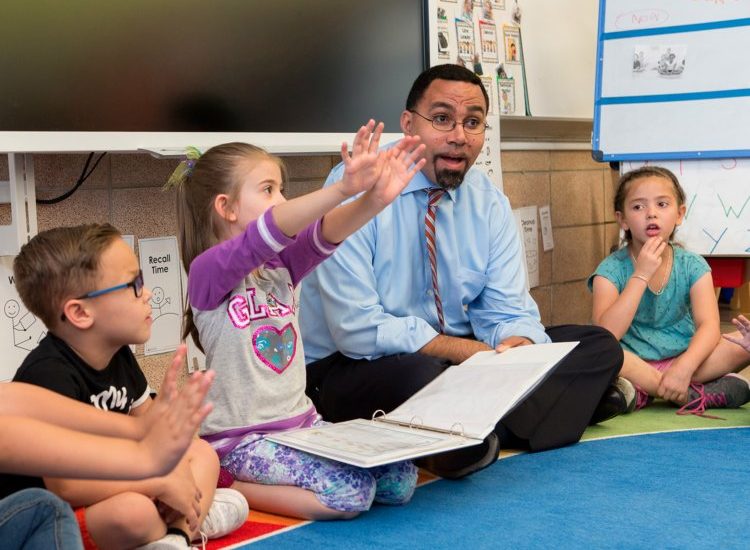
KJIPUKTUK (Halifax) – I always believed that public education constitutes one of the most important means of creating a democratic and inclusive society. I am certain the Nova Scotia Minister of Education and Early Childhood Development has reiterated this point a hundred times during interviews and speeches. Yet we probably disagree on how we will be able to create a more just society. I assume the Minister believes in equality of opportunity, so that we can level the playing field for everyone in society. I think much more than equal opportunity is necessary to undo our deeply unfair society.
See also: Beyond the school: a parent reflects on the struggles of children with disabilities
However, the recently announced cuts to the Early Literacy Support Program across schools reveals how the educational establishment in Nova Scotia no longer even believes in equal opportunity. The department’s support for the Halifax Regional Centre of Education’s decision to cut early literacy support programs is all the more surprising and grotesque given the minister’s announcement on May 2 that the it is hiring 173 more specialists for students with extra needs. I guess additional supports in the area of literacy and numeracy do not constitute “extra needs”!
My sense is that decision-makers at the Halifax Regional Centre of Education and the Department of Education underestimate the link between literacy/numeracy and inclusion, and the relationship between grade three reading skills and high school completion rates.
The Early Literacy Support Program cannot be replaced by one-on-one reading support, and as a result fewer children will benefit from additional literacy support during elementary school. Small group and one-on-one instruction for literacy development are not interchangeable, given each settings allows for different teaching strategies so combined they accommodate a broader range of learning needs.
Actually, in many cases students who receive instruction in small groups outperform those who are tutored on a one-on-one basis. Moreover, in a small group setting children are strengthening their literacy skills while improving their social and interpersonal ones . This is particularly important given that many children who benefit from early literacy intervention are later on diagnosed with learning disabilities which impact both academic and social skills. Having two venues, if not more, to strengthen our children’s literacy skills speaks to an understanding of inclusive education and of literacy and numeracy that is nuanced, contextualized and responsive to learners’ needs.
Justifying a decision by stating that schools have ever changing needs, as Education Minister Zach Churchill and Halifax Regional Centre for Education spokesperson Doug Hadley have commented, does not change the fact that this is an unsound pedagogical decision.
The ever changing nature of schools in fact requires that we invest more in them, rather than less. In the same manner, stating that school principals want literacy and numeracy coaches to work directly with teachers to improve the quality of their instruction speaks to the hastiness and lack of transparency in the decision-making process. How can we let administrators’ insights alone guide these decisions? Often principals have been out of classrooms for years and they may not be literacy and numeracy experts.
I believe teachers should be active members of schools as professional learning communities . However, learning how to integrate literacy and numeracy in one’s teaching practice is not something that occurs through a few PD workshops and we cannot realistically expect that teachers will fill in the void left by the cuts in the Early Literacy Support Program. However, what we can realistically expect is that in September 2020 the cuts will hit hard on our kids.
As a former teacher and the mom of kids with disabilities, I note that the public school system is becoming less transparent and more willing to exclude and segregate learners with different abilities.
My fear is that due to the current decisions by the Department of Education and the Halifax Regional Centre for Education, in the near future we will no longer be concerned about inclusive education in Nova Scotia since there will no longer be a public school system to speak of.
With a special thanks to our generous donors who make publication of the Nova Scotia Advocate possible.
Subscribe to the Nova Scotia Advocate weekly digest and never miss an article again. It’s free!




A greater understanding of the science of reading is needed in the education system. Of course, a public system cannot provide one to one supports. However, if we did adopt structured literacy as a everyday reading instruction then we wouldn’t have all of these problems with literacy that we currently realize.
Whole language, balanced literacy has brought us to these sad literacy scores and continuing on with this model will only bring similar results.
We should follow the science on literacy and adopt structured literacy both in the classroom as well as in a tiered system. Until we do, we will not see meaningful change and these children that are being left behind now will continue to struggle.
When principals ask for coaches for literacy and math to strengthen instructional practices it is often because principals recognize that they may not have the specialized expertise to guide and mentor teachers in these areas. I doubt any principals agreed that the coaches should replace early literacy support teachers.
Hi Sherri,
while that may be the case. That is how their request has been spun by the Halifax Centre for Education to justify their choices. It is the logic of that choice that gets me upset along with the actual cuts!
I agree with you and personally what gets me upset is this logic that less is better in education which implies that schools are actually overfunded.